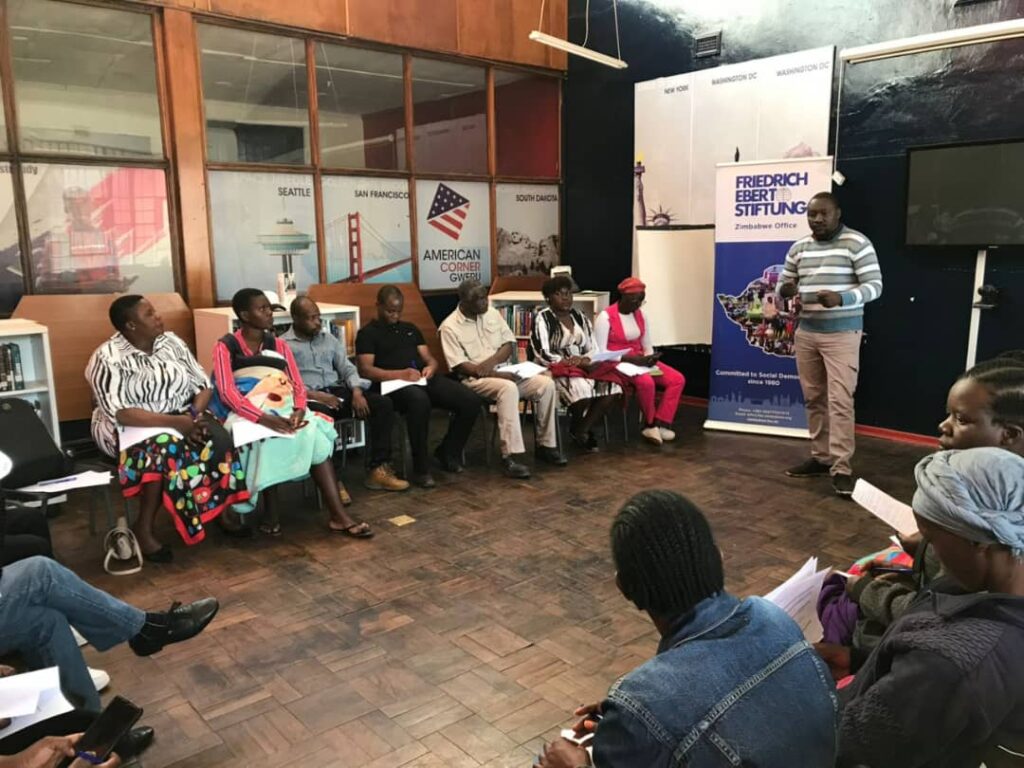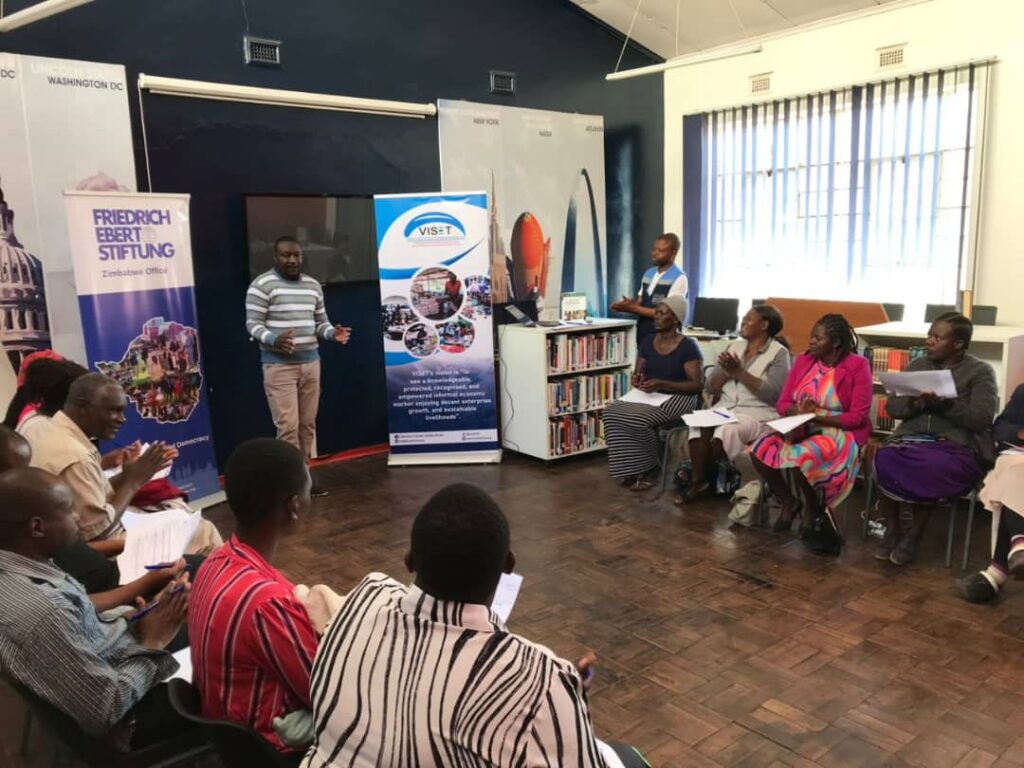VISET, FES In Informal Economy Workers Capacity Building in Gweru
By Delicious Mathuthu
Gweru, Zimbabwe – Vendors Initiative for Social and Economic Transformation (VISET) in partnership with Friedrich Ebert Stiftung (FES) Zimbabwe Office has launched a capacity building program aimed at empowering informal economy workers in Gweru to address their challenges and influence policy change.
The programme, which is a pilot project, is themed “Organising Informal Economy Workers for Inclusive Transformation”, seeking to equip VISET members with leadership skills to organise, engage, and partner with solution holders.
VISET Executive Director, Samuel Wadzai, said the program was born out of the need to address challenges facing informal traders in the City.
“We came to Gweru about a month ago to assess the challenges facing informal traders, which led to the project.
The programme is meant to sharpen informal trader skills to engage with officials who can fix our problems, such as council officials, police, and government departments,” he said.
Wadzai said understanding power dynamics and context, including local politics, and using grassroots community organizing techniques is essential.
He stressed on the need to address intersectional issues, building cordial relations with public officials and the media, as well as engaging in advocacy and lobbying activities to influence policies.
FES Zimbabwe Office Programs Manager, Ntando Dumani, said they are promoting justice and democracy with a belief in social justice, as well as social and economic rights.
He said FES is global and also entrenched in supporting African countries.
“We are celebrating 100 years in existence next year (2025) and have been operating in 24 countries in Africa, including Zimbabwe, where we opened our office in 1980,” he said.
Dumani trained participants on organizing skills, including building people power, stakeholder mapping and community organizing.
He said cities should be accommodative.
“Informal traders need to own this process. The Gweru project is part of FES’s Just City Projects, which aim to ensure that cities have a place for everyone, including informal economy workers,” said Dumani.
VISET Programs Officer, Edward Kapodogo trained participants on leadership styles, principles and values that good leaders should possess.
The programme expects to achieve several objectives, including equipping VISET members with leadership skills, facilitating informal economy interface with solution holders, and setting up the Gweru Informal Economy Working Group.
VISET also said they have identified two consultative places for the Gweru pilot project, Mtapa and Gweru CBD, and targets more than 80 leaders in the informal sector to help identify issues that need urgent attention.
The organization will also engage with key stakeholders, including council officials, and create the Informal Economy Working Group to lead issues of informal economy workers.



